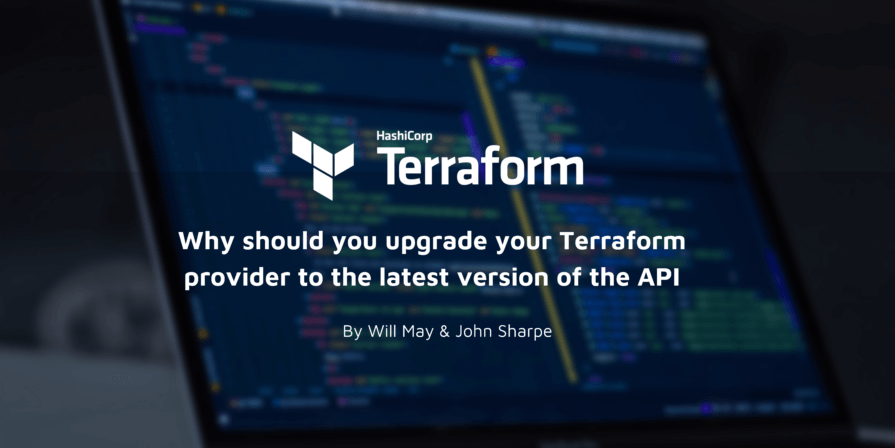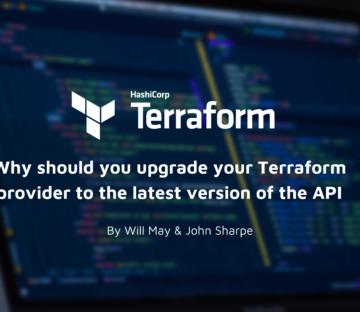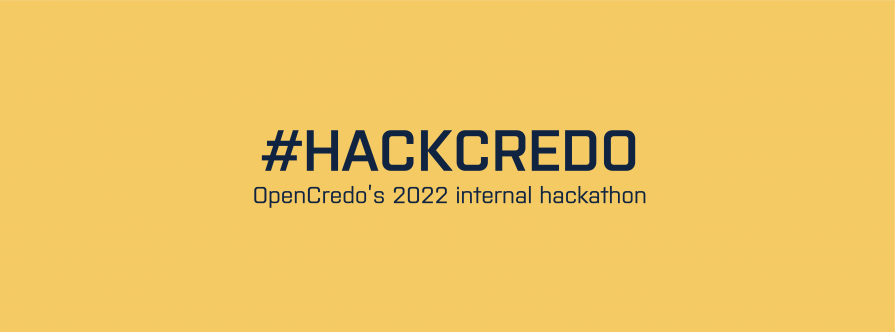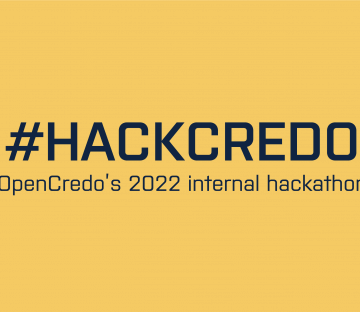26 items found: Search results for "collaboration" in all categories x


October 12, 2023 | Blog, Platform Engineering
Check out our latest blog “Event Driven Load Testing” which explores how, through some smart automation techniques, testing strategies can be adapted to support scale-up organisations where there are potentially many disparate teams needing to work together.


August 17, 2023 | Blog, Terraform Provider
Check out John Sharpe and Will May’s latest blog where they give suggestions for Terraform Provider authors who are thinking about upgrading from SDKv2 to Framework


As we are passionate about using technology to solve problems, we are thrilled to share with you our internal competition, “HackCredo.” Read on to learn more about the competition, the groups, and the winners.


November 13, 2019 | Culture, Software Consultancy
Back in August, we shared with you a pro-bono project we had embarked upon – the build of an application that would bring the Mental Health Collective’s vision-of-kindness to life: Technology, Kindness and Bananas.
Since then we have been experimenting with technologies, developing a platform, and implementing a solution that will allow MHC to take their initiative onwards.
(Tech stack employed: React, Amplify – DynamoDb, Lambdas, API Gateway)


August 14, 2019 | Culture, News
Here, in our little nook of the internet, we usually write about our experiences of emerging technologies, the tricky coding problems we’ve solved and how we have enhanced our clients’ businesses. We do this because we are very proud of this work. It truly matters.
Today is a little different. Today I’d like to share something a little more personal. Something that brings loneliness, kindness and technology together in an oxytocin-generating, slightly awkward embrace. Because hugs matter too.


July 31, 2018 | Machine Learning
Machine Learning, alongside a mature Data Science, will help to bring IT and business closer together. By leveraging data for actionable insights, IT will increasingly drive business value. Agile and DevOps practices enable the continuous delivery of business value through productionised machine learning models and software delivery.


July 13, 2018 | Software Consultancy
As a consultant I often find myself in situations that require tricky problem solving, typically of a technical nature. Yet although it is common to approach a consultancy engagement in terms of its technical context, not all problems have a purely technical solution.
Join us at …think software 2018! Take one afternoon to learn about some of the most important topics of the day, hear from outstanding speakers all with hard-won experience delivering projects.
We are excited to announce that our Senior DevOps consultant, Maartens Lourens will be speaking at Goto Nights London monthly meet up in April! To join us or find out more information, click here.


January 11, 2018 | Data Engineering
The last few years have seen Python emerge as a lingua franca for data scientists. Alongside Python we have also witnessed the rise of Jupyter Notebooks, which are now considered a de facto data science productivity tool, especially in the Python community. Jupyter Notebooks started as a university side-project known as iPython in circa 2001 at UC Berkeley.
We’re back with our next event, this time reflecting on recent political events and how Data and Machine Learning can influence it.


September 6, 2016 | Cassandra
A growing number of clients are asking OpenCredo for help with using Apache Cassandra and solving specific problems they encounter. Clients have different use cases, requirements, implementation and teams but experience similar issues. We have noticed that Cassandra data modelling problems are the most consistent cause of Cassandra failing to meet their expectations. Data modelling is one of the most complex areas of using Cassandra and has many considerations.




January 29, 2016 | DevOps
DevOps is 2016’s tech holy grail – unified development and operations, both working to deliver what the business needs, quickly, reliably, and adaptably. Done well, DevOps transforms the way organisations work; it helps break down barriers between tech teams, and between technology and the rest of the business. Good DevOps is the antidote to increasing segmentation and specialisation within companies. With the promised benefits, is it any wonder that senior managers are pushing for it in organisations spanning all sizes and industries?


January 7, 2016 | DevOps, Software Consultancy
Good consulting is, by its nature, an act of collaboration. We recently helped a company with a variety of challenges – some architecture, some coding, some systems, some people, some process (normal consultancy challenges) – unique to this client. During the project, we formalised some things we had thought before, but which had never crystallised – all the work we did was transformative. Whether it’s a code review, process review, DevOps implementation, or outright transformation, the primary goal is the same – improving flow. Flow (sometimes known as throughput) is the movement of raw materials through a system to become finished goods. It’s analogy in the service industry is the movement of customer requirements through to usable solution. And we help improve it.


December 16, 2015 | Cloud, DevOps
In the rush to embrace DevOps, many organisations seek out tools to help them achieve DevOps nirvana; the magical tools that will unify Development and Operations, stop the infighting, and ensure collaboration. This search for tools to solve problems exists in many domains, but seems particularly prevalent in IT (it may be real, or a reflection of my exposure to IT). The temptation to embrace new tools as a panacea is high, because the problems in IT seem so pervasive and persistent.


November 23, 2015 | Software Consultancy
Over a year ago, my colleague Tristan posted on the OpenCredo blog about a test automation quick start framework. It’s a prepackaged framework you can clone and get going with testing instantly, rather than wasting your time rebuilding your framework every single project. We have used this framework successfully used on many of our internal projects, and it relies upon a Java, Cucumber-JVM and Selenium stack.


October 12, 2015 | DevOps
DevOps is transformative. This (hopefully) won’t be true forever, but it is for now. While the modern management practices of separating development and operations (and to a lesser extent, everyone else) prevail, the tearing down of the walls that separate them will remain transformative. In company after company, management and front-line staff are coming to realise that keeping functions separate, which are inherently interdependent, is a model for blame, shifted responsibility, and acrimony. It’s easy to divvy-up a company up based on function. To many people, it seems the most logical way to do it. Ops does operations, Dev does development, Marketing markets, etc. It seems much harder to do it any other way. So why do it?




September 13, 2015 | DevOps
Last week I was privileged to be able to present my “Thinking Fast and Slow with Software Development” talk at the inaugural Software Circus conference in Amsterdam. The conference was amazing, and I’ll write more about this later, but in this post I was keen to share the presentation slides and the thinking behind this talk…




August 11, 2015 | DevOps
For years, OpenCredo has been working with organisations to help them introduce new technologies, and more effective development practices, to their IT teams. This has met with a great deal of success, and we have worked with a variety of companies of various sizes. During these projects, we have consistently noticed that the changes we make reach beyond IT in their impact and effects.
November 19, 2014 | Microservices
Undeniably, there is a growing interest in microservices as we see more organisations, big and small, evaluating and implementing this emerging approach. Despite its apparent novelty, most concepts and principles underpinning microservices are not exactly new – they are simply proven and commonsense software development practices that now need to be applied holistically and at a wider scale, rather than at the scale of a single program or machine. These principles include separation of concerns, loose coupling, scalability and fault-tolerance.